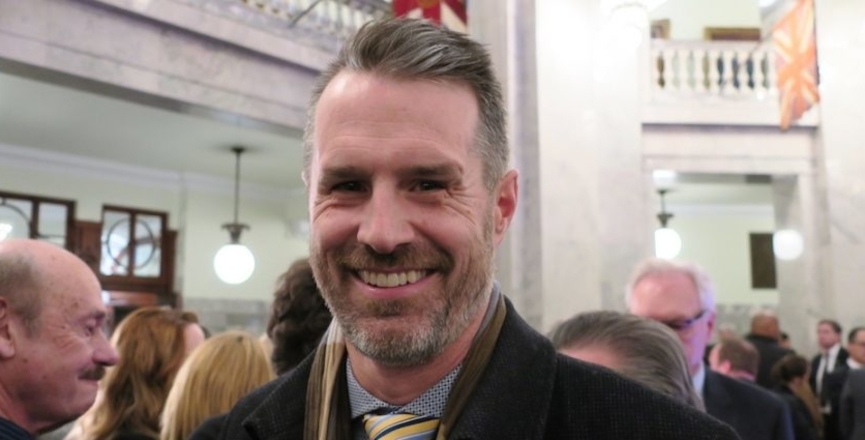Neil Fassina is about to leave his job as president of Athabasca University to lead a small public college in Kelowna, B.C.
Two weeks ago, Okanagan College announced in a press release that Fassina would be taking over as president of the 8,500-student institution on April 1, 2021.
“As a family who appreciates the outdoors, wake surfing, wine country, fishing, and running, my entire family is looking forward to settling in,” Fassina was quoted saying in the news release. Perhaps that will make up for the dramatic cut in pay Fassina will likely be taking after he gives up his $489,685 salary at AU. In 2018, at any rate, OC paid its retiring president $229,198.
Fassina, previously provost, academic vice-president and business school dean of the Northern Alberta Institute of Technology in Edmonton, took over as president of the 50-year-old distance education university nominally based in the town of Athabasca, 150 kilometres north of Edmonton, in October 2016.
But while faculty and staff at Athabasca U were told of Fassina’s plans, amid all the recent political and medical news the announcement of his departure for the Okanagan Valley was barely noticed in Alberta.
Less than six months ago, Fassina appeared to be the poster boy for Advanced Education Minister Demetrios Nicolaides’ 10-year plan to transform Alberta’s post-secondary education system. This came after years of financial insecurity at Athabasca U and deep angst about a distance-education mission that seemed to have been made redundant by the internet.
In 2018, Fassina had been appointed to chair the Council of Post-Secondary Presidents of Alberta, representing the province’s 26 post-secondary presidents in their dealings with the provincial government.
While he was in the middle of a major restructuring at AU and the institution’s relationship with the Athabasca University Faculty Association was fraught, the distance university seemed ideally placed after years of financial challenges to take advantage of the global coronavirus pandemic that is hitting conventional post-secondary institutions hard.
But a plan to exclude approximately two thirds of the AUFA’s current members from the association, leaving only professors with research duties, resulted in strong push-back by the association. The AUFA received boycott pledges from other faculty associations, which had the potential to reduce the numbers of visiting students and even end recognition of transfer credits from AU.
Whatever caused him to make the decision to leave for B.C., Fassina told faculty recently that while he had several reasons for his departure, they didn’t include faculty discontent, upcoming government decisions about post-secondary education, or any pressure for him to leave.
Meanwhile, Margaret Edwards appears to have been reassigned from her job as dean of AU’s faculty of health disciplines by academic vice-president Matthew Prineas.
In a memorandum to staff, Prineas said, “After lengthy deliberations, I have decided to make a change in the Dean for the Faculty of Health Discipline position. Effective immediately, Dr. Margaret Edwards will not be serving as Dean of the Faculty of Health Discipline.”
“Dr. Edwards holds her academic appointment and will be returning to her tenured Professor, Nursing and Health Studies role, in due time,” the memo continued. “I want to emphasize that this is in no way a reflection on the abilities of Dr. Edwards. I thank Dr. Edwards for her ongoing dedicated service and support to me, and her strong leadership, commitment, and service to the Faculty and the University at large.”
Prineas said in the memo an interim dean would be appointed and a search for a new dean would commence immediately. “Thank you for your patience and support through these transitions.”
David Climenhaga, author of the Alberta Diary blog, is a journalist, author, journalism teacher, poet and trade union communicator who has worked in senior writing and editing positions at The Globe and Mail and the Calgary Herald.
Image: David J. Climenhaga



